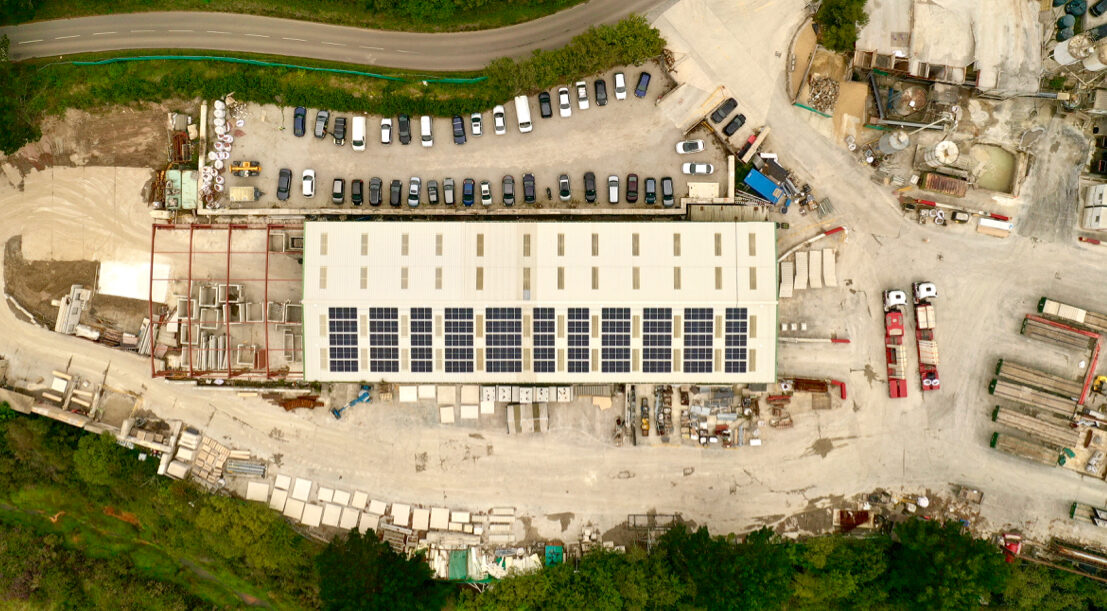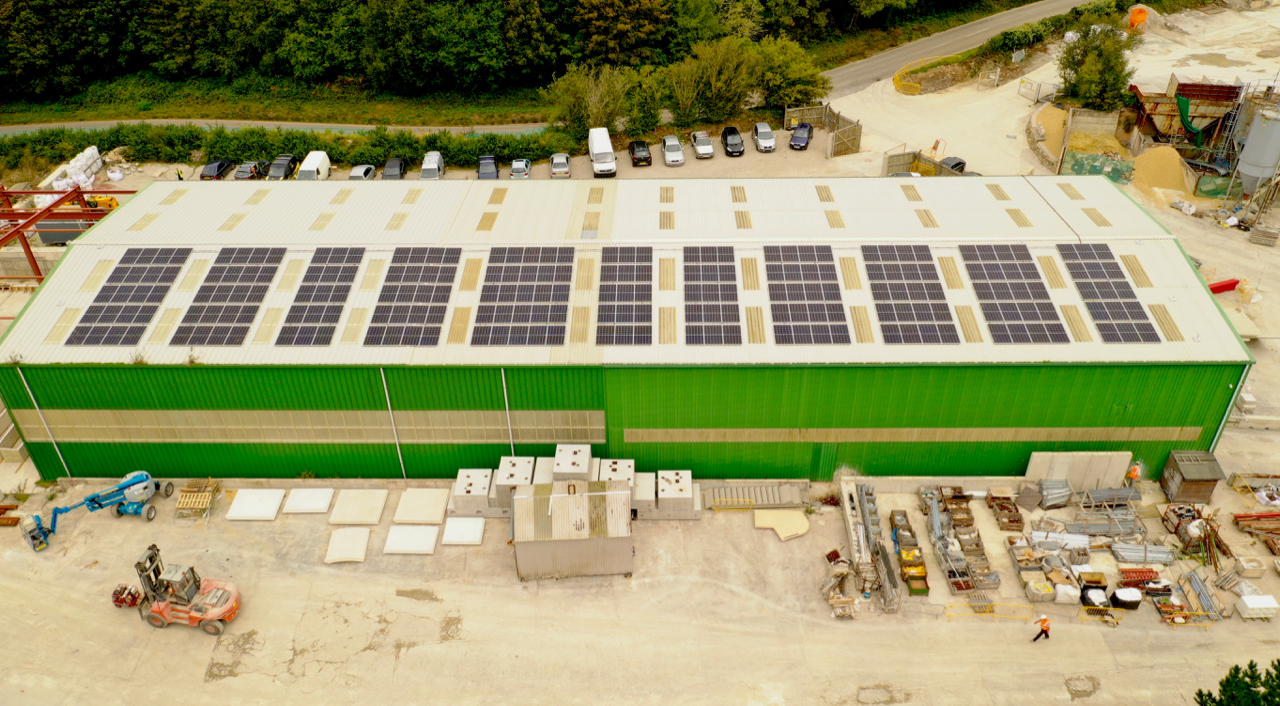Our latest solar installation makes an important environmental statement for Cornwall’s leading concrete manufacturer.
Based in Bissoe in the heart of a former tin-mining area, Cornish Concrete is a family-run business that takes its environmental responsibilities seriously. This is their latest step towards reducing the impact of their own products along with that of the materials and processes that they depend on.
Power from sunshine
The South West enjoys some of the highest solar irradiance levels in the UK, giving the region’s businesses an added incentive to invest in solar generation.
Cornish Concrete’s 76 kW solar PV system, comprising 205 roof-mounted panels, will provide them with around 75,000 kilowatt hours of electricity per year. This will save 480 tonnes of carbon from being emitted over the lifetime of the system.
A display in reception at Bissoe HQ highlights those carbon savings in real time, and gives staff and visitors a reminder that switching to renewables provides a direct benefit to the environment.
As Sean Piper, Cornish Concrete’s Managing Director puts it, “The construction industry doesn’t have the greatest reputation when it comes to the environment, so it’s great that we can make a measurable contribution to reducing carbon emissions.”
Energy at one third of the normal cost
The solar PV system will generate some 25% of the site’s annual electricity requirements. And it will do so at a cost that’s around a third of what businesses like Cornish Concrete usually pay.
Once the capital costs and ongoing maintenance are factored in, the equivalent forward buying price of the supplied electricity will be around 5p per KWh. That compares with the 13p to 17p that UK businesses typically pay* – and it’s not subject to the same price volatility.
“By generating our own energy, we know what the costs will be for the next 25 years,” says Sean. “That makes a huge difference to our ability to forecast and plan for the future of the business.”
Cement and CO2
Greenhouse gas emissions from cement production are recognised as the construction sector’s biggest sustainability challenge. The process is both energy-intensive and a direct source of C02 release through the chemical reaction of calcination.
Cornish Concrete have worked with their suppliers for many years to encourage a reduction in emissions from cement. They’ve had a BRE certificate for Responsible Sourcing for nearly a decade, based on their procurement policies and supply chain management.
As Sean Piper says, “We need to look at all the ways, as a business, that we can have a positive environmental impact. Sourcing our core materials responsibly is a major part of that, but we can’t just wait for our suppliers to develop carbon-neutral products. Cutting our own emissions through renewable generation was the obvious way to make the biggest difference.”
Build, build, build (but sustainably)
The government has put construction at the heart of its post-covid economic strategy, and concrete’s versatility and durability make it an essential component of this. It is the world’s most widely used man-made material, after all.
But there’s a danger that this urgent response to the covid crisis could undermine efforts to tackle the larger and longer-term climate crisis.
Cornish Concrete are committed to tackling both.
Having supplied precast products for the V&A museum, Plymouth University, Clapham Junction station and the Olympic Park, they have helped shape this country’s urban landscape. By investing in renewable energy at this time, their aim is to make sure the economic recovery goes hand-in-hand with mitigating the effects of climate change.
* Source: Department for Business, Energy & Industrial Strategy
Gas and electricity prices in the non-domestic sector, September 2020

